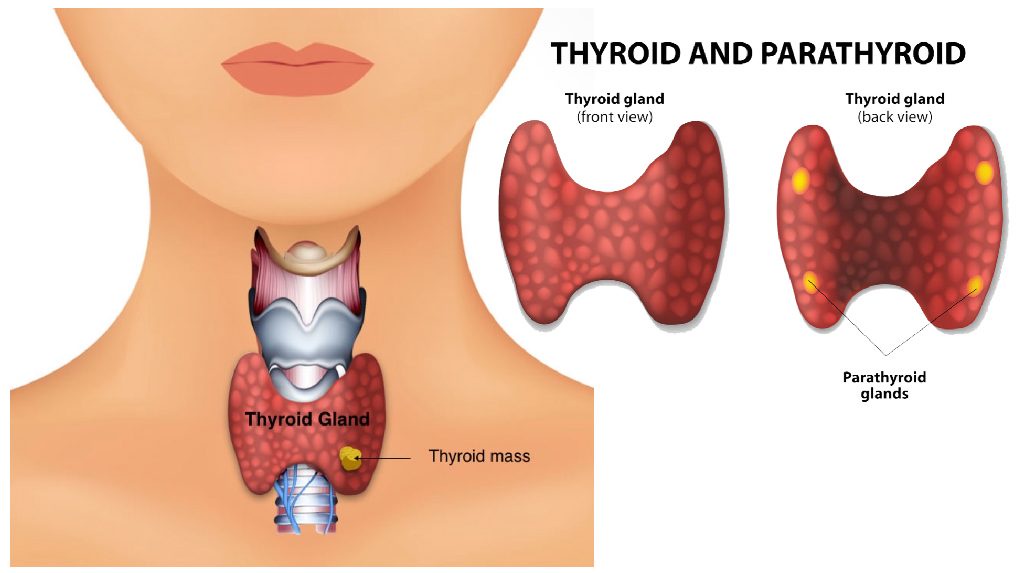The thyroid gland, located in the neck, plays a crucial role in regulating various bodily functions. When the thyroid gland malfunctions, it can lead to a range of thyroid problems and diseases. Understanding the types and causes of thyroid disorders is essential for early detection and proper management. In this article, we will explore common types of thyroid problems and their underlying causes.
1. Hypothyroidism:
Hypothyroidism occurs when the thyroid gland does not produce enough thyroid hormones. This can result from several causes, including:
a) Autoimmune Thyroiditis (Hashimoto's disease): The immune system mistakenly attacks and damages the thyroid gland, leading to reduced hormone production.
b) Thyroid Surgery or Radioactive Iodine Treatment: Surgical removal of the thyroid gland or the use of radioactive iodine to treat thyroid conditions can cause hypothyroidism.
c) Congenital Hypothyroidism: Some babies are born with an underactive thyroid gland due to genetic factors or abnormal development during pregnancy.
2. Hyperthyroidism:
Hyperthyroidism is the opposite of hypothyroidism, where the thyroid gland produces excessive amounts of thyroid hormones. The common causes include:
a) Graves' Disease: This autoimmune disorder causes the immune system to stimulate the thyroid gland, resulting in the overproduction of thyroid hormones.
b) Thyroid Nodules: Abnormal growths or nodules on the thyroid gland can produce excess hormones and lead to hyperthyroidism.
c) Excessive Iodine Intake: Consuming too much iodine through diet or medication can trigger hyperthyroidism.
d) Thyroiditis: Inflammation of the thyroid gland, whether due to infection or other causes, can temporarily cause hyperthyroidism.
3. Thyroid Cancer:
Thyroid cancer occurs when abnormal cells in the thyroid gland grow and multiply uncontrollably. While the exact causes of thyroid cancer are unknown, certain risk factors may increase the likelihood of developing the disease:
a) Family History: Having a close relative with thyroid cancer or a history of certain hereditary conditions can increase the risk.
b) Exposure to Radiation: Previous radiation treatments to the head and neck region or exposure to radiation fallout may raise the risk of thyroid cancer.
c) Gender and Age: Women, especially those between the ages of 25 and 65, are more prone to thyroid cancer.
4. Goiter:
Goiter refers to an abnormal enlargement of the thyroid gland. The causes of goiter include:
a) Iodine Deficiency: Inadequate intake of iodine, a vital nutrient for thyroid hormone production, can cause the thyroid gland to enlarge in an attempt to compensate.
b) Graves' Disease: In some cases, goiter can develop in individuals with Graves' disease, leading to an enlarged thyroid gland.
c) Thyroid Nodules: Certain thyroid nodules can cause goiter, especially if they result in overproduction or underproduction of thyroid hormones.
5. Thyroiditis:
Thyroiditis refers to the inflammation of the thyroid gland, which can cause temporary disruptions in thyroid hormone production. The causes include:
a) Autoimmune Thyroiditis: Hashimoto's disease, an autoimmune condition, can lead to thyroiditis and subsequent hypothyroidism.
b) Viral or Bacterial Infection: Infections can cause temporary inflammation of the thyroid gland, resulting in thyroiditis.
Understanding the types and causes of thyroid problems is crucial for early detection and appropriate management. If you experience symptoms such as fatigue, weight changes, mood swings, or unexplained changes in your neck, it is important to consult a healthcare professional. They can perform diagnostic tests, such as blood tests or imaging studies, to evaluate your thyroid function and determine the appropriate treatment plan.
Also Read: Natural Remedies for Thyroid Health


No comments yet